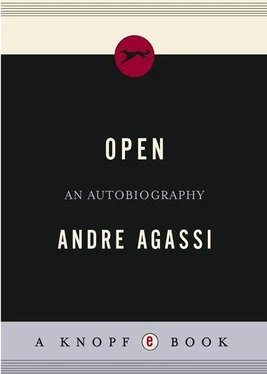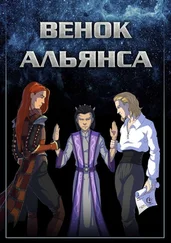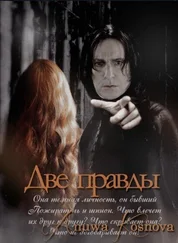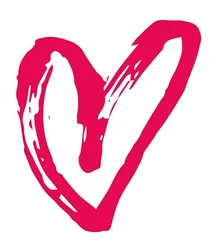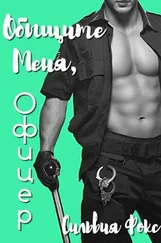Unknown - i a3f9967826fa0ec9
Здесь есть возможность читать онлайн «Unknown - i a3f9967826fa0ec9» весь текст электронной книги совершенно бесплатно (целиком полную версию без сокращений). В некоторых случаях можно слушать аудио, скачать через торрент в формате fb2 и присутствует краткое содержание. Жанр: Старинная литература, на английском языке. Описание произведения, (предисловие) а так же отзывы посетителей доступны на портале библиотеки ЛибКат.
- Название:i a3f9967826fa0ec9
- Автор:
- Жанр:
- Год:неизвестен
- ISBN:нет данных
- Рейтинг книги:5 / 5. Голосов: 1
-
Избранное:Добавить в избранное
- Отзывы:
-
Ваша оценка:
- 100
- 1
- 2
- 3
- 4
- 5
i a3f9967826fa0ec9: краткое содержание, описание и аннотация
Предлагаем к чтению аннотацию, описание, краткое содержание или предисловие (зависит от того, что написал сам автор книги «i a3f9967826fa0ec9»). Если вы не нашли необходимую информацию о книге — напишите в комментариях, мы постараемся отыскать её.
i a3f9967826fa0ec9 — читать онлайн бесплатно полную книгу (весь текст) целиком
Ниже представлен текст книги, разбитый по страницам. Система сохранения места последней прочитанной страницы, позволяет с удобством читать онлайн бесплатно книгу «i a3f9967826fa0ec9», без необходимости каждый раз заново искать на чём Вы остановились. Поставьте закладку, и сможете в любой момент перейти на страницу, на которой закончили чтение.
Интервал:
Закладка:
What makes it perverse, I tell him, is that it all revolves around tennis, and I hate tennis.
Right, sure. But you don’t actually hate tennis.
Yes. Yes, I do.
I talk about my father. I tell J.P. about the yelling, the pressure, the rage, the abandonment. J.P. gets a funny look on his face. You do realize, don’t you, that God isn’t anything like your father? You know that—don’t you?
I almost drive the Corvette onto the shoulder.
God, he says, is the opposite of your father. God isn’t mad at you all the time. God isn’t yelling in your ear, harping on your imperfections. That voice you hear all the time, that angry voice? That’s not God. That’s still your father.
I turn to him: Do me a favor? Say that again.
He does. Word for word.
Say it once more.
He does.
I thank him. I ask about his own life. He tells me that he hates what he does. He can’t abide being a pastor. He no longer wants to be responsible for people’s souls. It’s a round-the-clock job, he says, and it leaves him no time for reading and reflection. (I wonder if this is a slight jab at me.) He’s also hounded by death threats. Prostitutes and drug pushers come to his church and reform, and then their pimps and junkies and families, who’ve depended on that stream of income, blame J.P.
What do you think you’d like to do instead?
Actually, I’m a songwriter. A composer. I’d like to make music for a living.
He says he’s written a song, When God Ran, that’s a huge hit on the Christian charts. He sings a few bars. He has a nice voice and the song is moving.
I tell him that if he wants it bad enough, and works hard enough, he’ll succeed.
When I start talking like a motivational speaker, I know I’m tired. I look at my watch. Three in the morning. Wow, I say, stifling a yawn, if you don’t mind, can you just drop me off at my parents’ house? I live right up here at the corner and I’m exhausted. I can’t drive another minute. Take my car, take yourself home, bring it back to me when you can.
I don’t want to take your car.
Why not? Fun car. Goes like the wind.
I see that. But what if I wreck it?
If you wreck it, as long as you’re okay, I would laugh. I don’t give a shit about the car.
How long do you want me to—I mean, when should I bring it back?
Whenever.
He brings it back the next day.
Driving to church in this thing was awkward enough, he says, tossing me the keys. But, Andre, I officiate at funerals. You cannot drive up to a funeral in a white Corvette.
I INVITE J.P. TO MUNICH for Davis Cup. I look forward to Davis Cup, because it’s not about me, it’s about country. I imagine it’s as close as I’ll ever get to playing on a team, so I expect the trip to be a pleasant diversion, the matches to be easy, and I want to share the experience with my new friend.
Early on I find myself pitted against Becker, who’s attained godlike status in West Germany. The fans are bringing down the house, twelve thousand Germans cheering his every swing, booing me. And yet I’m unfazed, because I’m in a zone. Maybe not the zone, but my zone. I can’t miss. Also, I promised myself months ago that I’d never again lose to Becker, and I’m making good on that promise. I jump out to a two-set lead. J.P. and Philly and Nick are the only people cheering for me, and I can hear them. A fine day in Munich.
Then I lose my concentration, followed by my confidence. I drop a game and head for my chair during the changeover, discouraged.
Suddenly several German officials are gabbling at me. They’re calling me back onto the court.
The game isn’t over.
Come back, Mr. Agassi, come back.
Becker giggles. The audience roars with laughter.
I walk back onto the court, feeling my eyes throb. Once again I’m at the Bollettieri Academy, being humiliated by Nick in front of the other kids. I have enough trouble being laughed at in the press, but I can’t handle being laughed at in person. I lose the game. I lose the match.
Showered, climbing into a car outside the arena, I ignore J.P. and turn to Nick and Philly. I tell them: The first person who talks to me about tennis is fired.
I SIT ON THE BALCONY of my Munich hotel room, alone, staring out over the city.
Without thinking, I begin lighting things on fire. Paper, clothes, shoes. For years this has been one of my furtive ways of coping with extreme stress. I don’t do it consciously. An impulse comes over me and I reach for the matches.
Just as I’ve got a small bonfire going, J.P. appears. He watches, then calmly adds a piece of hotel stationery to my bonfire. Then a napkin. I add the room-service menu. We feed the bonfire for fifteen minutes, neither of us saying a word. As the last flame dies down he asks, Do you want to go for a walk?
We wind our way through the beer gardens of downtown Munich. Everywhere we look, people are being boisterous, festive. They’re drinking from one-liter tankards, singing and laughing. The laughter gives me the shakes.
We come to a large stone bridge with a cobblestone walkway. We cross. Far below is a rushing river. At the apex of the bridge we stop. No one is around. The singing and laughter have subsided. We hear nothing but the rushing water. I stare into the river and ask J.P.: What if I’m no good? What if today wasn’t a bad day, but my best day? I’m always making excuses when I lose. I could have beaten him if such-and-such. If I’d wanted it. If I’d had my A game. If I’d gotten the calls. But what if I’m playing my best, and I care, and I want it, and I’m still not the best in the world?
Well—what if?
I think I’d rather die.
I lean against the railing, sobbing. J.P. has the decency, the wisdom, to say and do nothing. He knows there is nothing to say, nothing to do, but to wait for this fire to burn out.
I FACE CARL-UWE STEEB, another German, the following afternoon. Spent, physically and emotionally, I play Steeb exactly the wrong way. Yes, I’m attacking his backhand, which is his weakest shot, but I’m doing it with pace. If I were to give him no pace, he’d have to generate his own, and his backhand would be much weaker. His greatest flaw would be on display. Using my pace, however, he can hit a low slice that stays down on this fast surface. I’m making him better than he is, all because I’m trying to hit bigger than I need to, trying to be perfect. With a cordial smile Steeb accepts my gifts, settling into his legs and his Agassi-augmented backhand, having a marvelous time. Later, the captain of the Davis Cup team accuses me of tanking, as does a prominent sportswriter.
PART OF THE PROBLEM with my game in 1989 is my racket. I’ve always used a Prince, but Nick has convinced me to sign with a new company, Donnay. Why? Because Nick’s got money troubles, and for delivering me to Donnay he gets a lucrative contract for himself.
Nick, I tell him—I love my Prince.
You could play with a broomstick, he says. It wouldn’t matter.
Now, with the Donnay, I feel as if I am playing with a broomstick. I feel as if I’m playing left-handed, as if I’ve suffered a brain injury. Everything is slightly off. The ball doesn’t listen to me. The ball doesn’t do what I say.
I’m in New York, hanging out with J.P. It’s well after midnight. We’re sitting in a seedy deli with garish fluorescent lights and loud countermen arguing in several Eastern European languages. We’re each having a cup of coffee and I’m holding my head in my hands, telling J.P.
over and over: When I hit the ball with this new racket, I don’t know where it’s going.
You’ll find a solution, J.P. says.
How? What?
I don’t know. But you will. This is a momentary crisis, Andre. One of many. As sure as we’re sitting here, there will be others. Bigger, smaller, and everything in between. Treat this crisis as practice for the next crisis.
Читать дальшеИнтервал:
Закладка:
Похожие книги на «i a3f9967826fa0ec9»
Представляем Вашему вниманию похожие книги на «i a3f9967826fa0ec9» списком для выбора. Мы отобрали схожую по названию и смыслу литературу в надежде предоставить читателям больше вариантов отыскать новые, интересные, ещё непрочитанные произведения.
Обсуждение, отзывы о книге «i a3f9967826fa0ec9» и просто собственные мнения читателей. Оставьте ваши комментарии, напишите, что Вы думаете о произведении, его смысле или главных героях. Укажите что конкретно понравилось, а что нет, и почему Вы так считаете.
